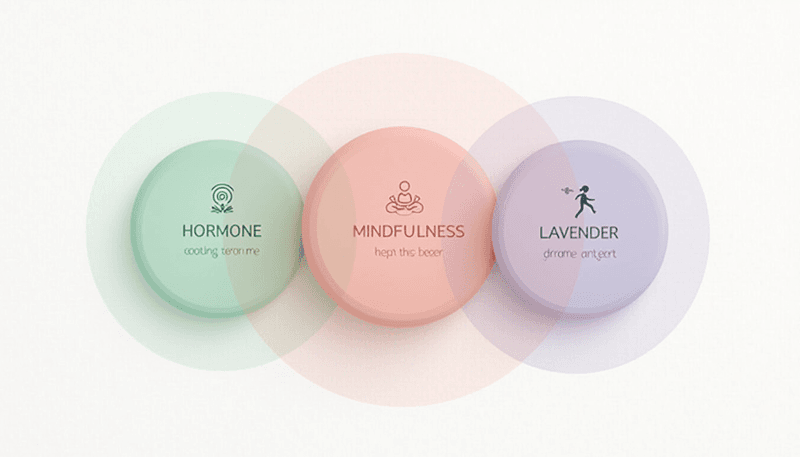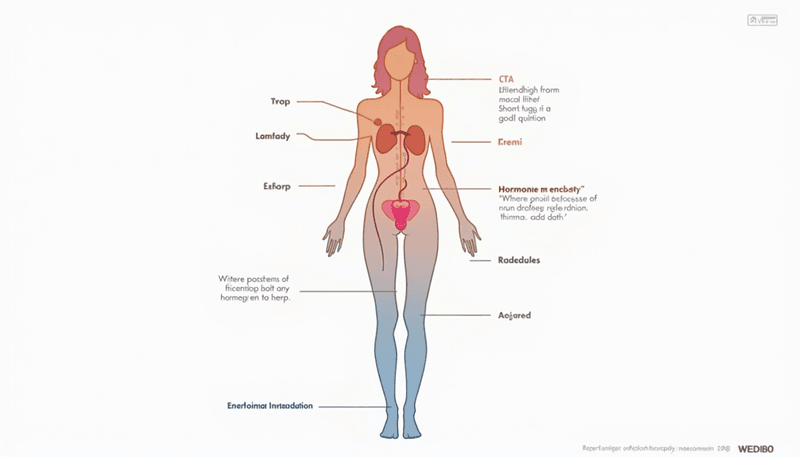Natural Ways to Thrive Through Menopause

Hot flashes striking during an important meeting? Night sweats disrupting your sleep? You're not alone. As a women's health advocate and medical writer, I've witnessed countless women struggling with menopausal symptoms, often feeling lost about how to manage them effectively. A groundbreaking study from Valparaiso University reveals a comprehensive approach to improving quality of life during menopause, combining three powerful strategies that work together synergistically.
The Power of Combined Approaches
The research shows that combining hormone therapy, mindfulness practices, and regular exercise creates a powerful trio for managing menopausal symptoms. Think of it as a three-legged stool - each component provides essential support, and together they create a stable foundation for your well-being.
"Why settle for managing just one aspect of menopause when you can address multiple symptoms simultaneously?"
Let me share a story from my practice: Sarah, a 48-year-old executive, came to me exhausted from dealing with hot flashes and mood swings. After implementing this combined approach, she reported not just relief from physical symptoms, but a newfound sense of emotional balance and energy.
Mindfulness: Your Mental Anchor
The study revealed that mindfulness practices significantly reduced anxiety and improved sleep quality. But what does mindfulness really mean in practical terms? It's not about sitting in lotus position for hours - it's about simple, doable practices that fit into your daily life.
Quick Mindfulness Practices You Can Start Today:
- Take three deep breaths before responding to emails
- Practice body scanning during your morning shower
- Set a daily reminder for a 5-minute meditation break
One of my patients, Maria, incorporated mindfulness into her morning routine by simply sitting with her coffee for five minutes before starting her day. She noticed improvements in her stress levels within just two weeks.
Exercise: Your Body's Natural Medicine
The research confirmed that regular physical activity isn't just about maintaining weight - it's a powerful tool for managing menopausal symptoms. The key finding? You don't need to become a marathon runner to see benefits.
Effective Exercise Strategies:
- 30 minutes of brisk walking 5 times per week
- Strength training twice weekly
- Gentle yoga or stretching for flexibility
"How can you make movement a natural part of your daily routine rather than another item on your to-do list?"
Lisa, another patient, started with 10-minute walks during her lunch break. Within a month, she was easily walking for 30 minutes and reported fewer hot flashes and better mood regulation.
Hormone Therapy: Understanding Your Options
The study emphasized the importance of personalized hormone therapy when appropriate. This isn't a one-size-fits-all solution, but rather a carefully considered option that should be discussed with your healthcare provider.
Key Points About Hormone Therapy:
- It's most effective when started within 10 years of menopause onset
- Different delivery methods are available (pills, patches, creams)
- Regular monitoring ensures optimal results
I remember working with Jennifer, who was hesitant about hormone therapy due to things she'd read online. After discussing the current research and her personal risk factors, she felt empowered to make an informed decision about her treatment options.
The beauty of this research lies in its practical applications. Each woman's journey through menopause is unique, but these evidence-based strategies provide a framework for creating your personal wellness plan. The study showed that women who implemented all three approaches reported a 65% improvement in their quality of life scores.
"What small step could you take today toward implementing one of these strategies?"
As we wrap up, remember that managing menopause effectively isn't about finding a single magic solution - it's about creating a personalized approach that works for your lifestyle and needs. Start with one small change and build from there. Your future self will thank you.
Your Next Step: Choose one strategy from this post - whether it's a 5-minute mindfulness practice, a short daily walk, or scheduling a consultation about hormone therapy - and commit to trying it for one week. Share your experience with other women in your life who might benefit from this information. Together, we can create a more informed and supportive community for women navigating menopause.

Dr. Marcus Anthony Bennett
Dr. Marcus Bennett is a Seattle-based freelance medical writer and consultant specializing in mid-aged women's health. With a background in internal medicine and over a decade of experience in preventive care, he is dedicated to making complex health topics accessible. Dr. Bennett completed his MD at Johns Hopkins School of Medicine and residency at the University of Washington. His empathetic and evidence-based approach combines traditional medical expertise with a focus on health disparities, often incorporating practical lifestyle advice. Known for his clear, engaging communication, Dr. Bennett provides actionable insights to empower his audience.








